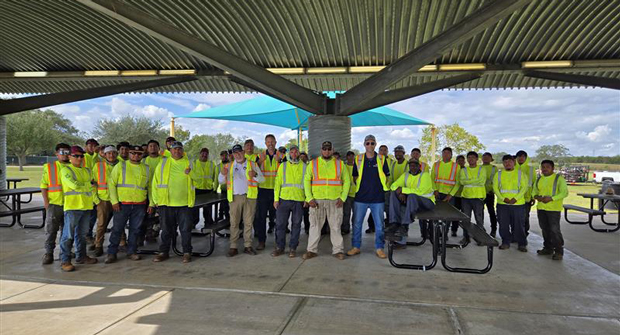CoCal Landscape, based in Denver, is one of the largest landscape contractors in Colorado; it ranks No. 119 on the 2013 LM150 list of the largest companies in the landscape industry.

To reduce its environmental footprint CoCal developed a comprehensive sustainability program that focuses on maintaining balance with nature. The company recently expanded this program by replacing its gasoline-fueled mowers with propane-fueled models. Jesus “Chuy” Medrano, co-founder and owner of CoCal, said this move has not only reduced emissions but helped the company secure new business.
Building a sustainable business
CoCal always has been committed to environmental stewardship, but in recent years the company has taken a more aggressive approach to going green. CoCal developed an internal composting system for its landscape debris, and in 2011 the company planted enough trees to offset more than 500,000 lbs. of carbon dioxide emissions.
To reach the company’s ultimate goal of becoming a net-zero environmental impact company, Medrano started exploring alternative fuel options. Propane-fueled mowers reduce carbon monoxide emissions by more than 80 percent and greenhouse gas emissions by nearly 50 percent compared to gasoline-fueled mowers. Upon discovering these statistics, Medrano decided switching his gasoline-fueled fleet to propane was another necessary, green step for the company.
“I was already used to the idea of propane, because we ran our tractors on propane back home in Mexico,” said Medrano. “When I had an opportunity to acquire some propane-fueled models from a friend, I started thinking a switch to propane was a way we could help the environment and our business as gasoline prices keep going up and up.”
In February 2012, John Deere purchased all of CoCal’s gasoline-fueled mowers and helped Medrano convert 85 new John Deere stand-on models to propane. Utilizing the Propane Education & Research Council’s (PERC’s) Propane Mower Incentive Program, Medrano estimates he saved approximately two-thirds of the initial cost of the conversion kits.
CoCal Landscape marketed its switch to clean-burning propane to new and existing customers and has received a largely positive reaction. Medrano believes the company has landed a few new contracts because of the switch, particularly with government agencies where green initiatives are being stressed.
Reduced fuel costs
Though purchasing the mowers and converting them to propane required an initial investment, CoCal quickly started saving money after making the switch. Medrano estimates that in its first lawn maintenance season, CoCal saved about $35,000 to $40,000 in fuel costs alone.
“I’m excited,” Medrano said. “We are saving about $5,000 to $7,000 a month in fuel. And now that we’ve got our employees and mechanics trained to calibrate and maintain the mowers, it can only get better. In 2013 I’m expecting to save $50,000. The savings definitely factored into my decision to switch to propane.”
CoCal Landscape also experiences additional cost savings by purchasing propane when it’s at a lower price point in Colorado. Medrano locks in pricing with his propane dealer during the summer months when demand in Colorado is lower compared to winter months, when propane is used for heating.
Refueling equipment with propane has also saved the company time and money. CoCal participates in a cylinder exchange program with a local propane company. The propane provider’s employees visit CoCal locations in Denver and Longmont, Colo., each day to exchange empty propane cylinders for full ones. The convenience of refueling on-site has eliminated employees’ time spent fueling at gas stations, and with comparable performance, employees rarely have to exchange cylinders on the job.
“Our mechanics brought all the equipment in one weekend and calibrated the mowers for our altitude so they burn at maximum efficiency,” Medrano said. “After that, we started getting an additional hour out of every cylinder. Now we get five to six hours out of every cylinder, which lasts us all day since we run five- to six-hour shifts.”
Medrano believes more landscape contractors eventually will make the switch to propane-fueled mowers.
“It will take some time, but people will catch on,” Medrano said. “CoCal has been in the industry for years, we’ve won a lot of awards and we’re one of the most advanced companies as far as being green, so eventually competitors are going to copy what we’re doing. They usually do.”
Simpson is a public relations professional representing the Propane Education & Research Council.

